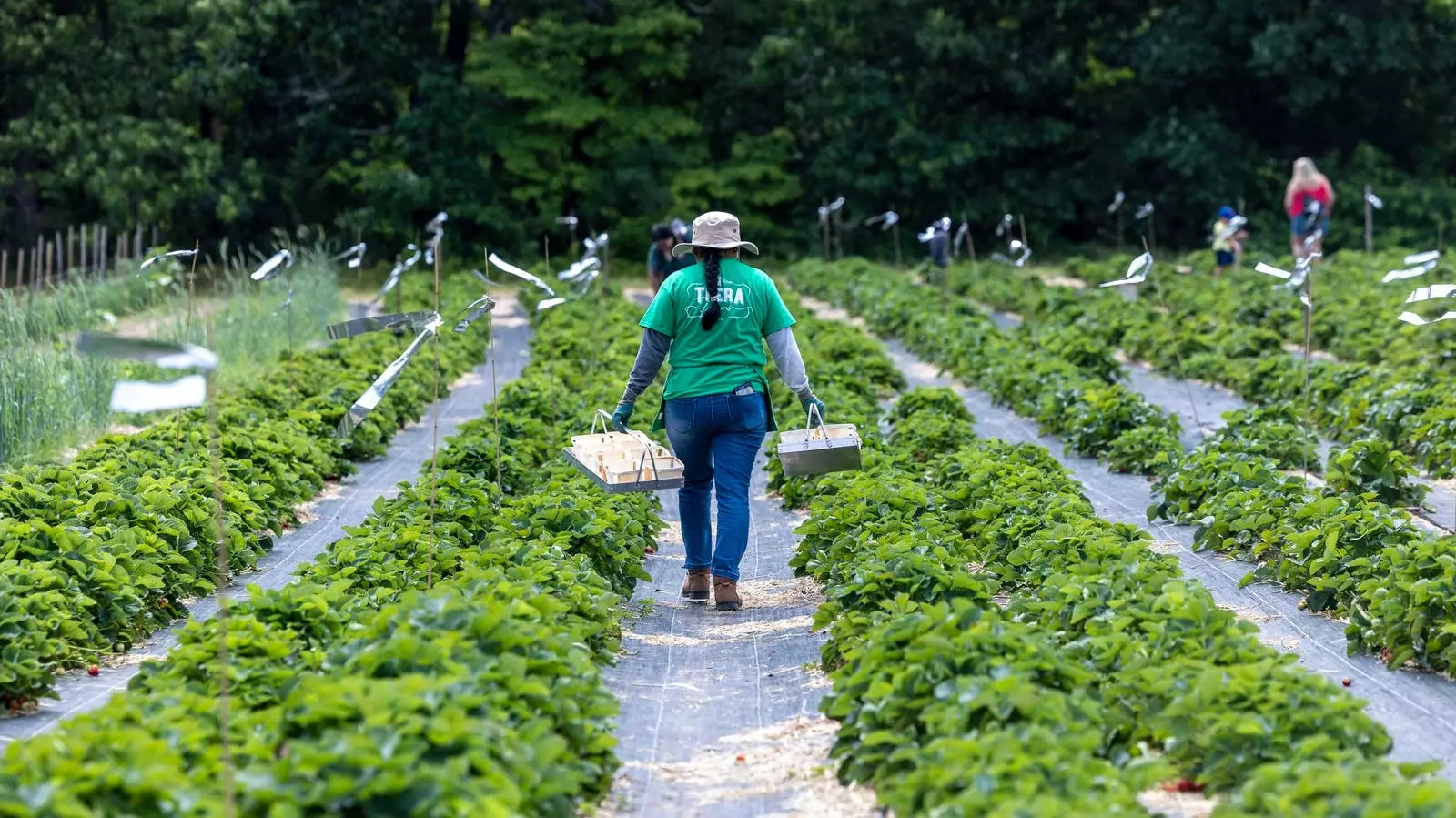As we navigate the tumultuous landscape of modern agriculture, the clarion call to address food insecurity has never been more urgent. A confluence of factors is exacerbating this critical issue: extreme weather patterns driven by climate change are intensifying droughts and floods, leading to significant agricultural loss. Concurrently, geopolitical conflicts are amplifying food scarcity, pushing millions into hunger. The data speaks volumes: according to the Food and Agriculture Organization (FAO) of the United Nations, at least 733 million people—roughly one in eleven—are grappling with hunger, while nearly 3 billion individuals cannot afford a diet that meets basic nutritional standards. The implications are staggering, forcing us to confront the dire state of food systems worldwide.
With World Food Day approaching on October 16, it is imperative to reflect on how we can rectify these dire realities. This year’s theme, “Right to Foods for a Better Life and a Better Future,” encapsulates a future vision where everyone has access to affordable, nutritious food. Yet, achieving this vision hinges on an essential premise: diversity. Diversity in food, agricultural practices, and stakeholder involvement could provide the foundation for resilient food systems, as echoed by Sieglinde Snapp, Director of Sustainable Agrifood Systems Program at CIMMYT.
A fundamental shift in how we perceive and structure our agricultural practices is crucial. As highlighted by Dr. Evan Fraser from the Arrell Food Institute, the concept of “cascading crises” is a reality that we cannot afford to overlook. We need to adopt “opportunity crops”—such as cowpeas, millet, and sorghum—which, although often overshadowed by conventional staple crops, offer greater resilience and nutritional value while improving soil health. By focusing on these underutilized crops, particularly in regions like Sub-Saharan Africa, we can cultivate not just biodiversity, but economic viability for local farmers.
Dr. Cary Fowler’s recent recognition with the World Food Prize underlines the critical role that crop biodiversity plays in our quest for food security. The importance of preserving diverse crop varieties cannot be overstated, as each contributes uniquely to both ecosystem health and our food supply. Promoting these ancient grains should go hand in hand with bolstering infrastructure for storage, processing, and market access. In fostering these opportunities, we can empower local communities and create a food system that is both sustainable and equitable.
Empowering Women: The Catalyst for Change
A thematic thread woven throughout discussions on food security is the transformative role of women in agricultural systems. Women, who make up a significant portion of the agricultural labor force, are often the unsung heroes behind sustainable food production. Their empowerment is not merely a moral imperative; it is a pathway to resolving the world’s hunger crisis. Tom Pesek from the U.N. FAO emphasizes that when women are equipped with equal rights and resources—education, land, financial support—they could help lift 100 million individuals out of hunger.
Women are primary caretakers of nutrition in families and communities, frequently the producers of nutrient-dense foods, including fruits and vegetables. Yet, they remain underrepresented in decision-making processes. The dialogues surrounding food systems must prioritize women’s voices, ensuring they lead from the front in advocating for sustainable change.
A Holistic Approach for Inclusive Solutions
Moving forward, a holistic approach is vital for realizing effective solutions to food insecurity. Jeffrey Herrick, a Senior Advisor with the U.S. Department of State, stresses the necessity of integrating the perspectives of food producers into agricultural and climate dialogues. This inclusivity can enhance policy outcomes and yield more sustainable practices.
In various regions, initiatives are emerging that exemplify such cooperation. For instance, the Good Nature Agro initiative in Zambia is a driving force in educating farmers on strategies to reduce post-harvest losses while enhancing land management. Furthermore, the McKnight Foundation’s support of farmer research networks showcases the potential of localized solutions tailored to specific ecological contexts.
The disparity in climate finance is another area in urgent need of reform. Smallholder farmers contribute immensely to global food production yet receive a mere fraction of total climate funding. As highlighted by Jahan-Zeb Chowdhury, addressing this inequity is essential to facilitating a sustainable transition within agricultural systems.
As we stand on the precipice of World Food Day 2024, scheduled to take place at the Arrell Food Summit, there is a profound opportunity to unite agri-food leaders across the globe. By focusing on fostering diversity, empowering marginalized groups, and prioritizing the voices of those in the trenches, we can catalyze positive change in global food systems.
This World Food Day, let us not only acknowledge the challenges but also ignite the conversations necessary for generating actionable solutions. By working collaboratively toward a transformed and equitable food system, we can ensure that every individual has access to the nourishment they deserve, paving the way for a healthier, more sustainable future for all.


Leave a Reply